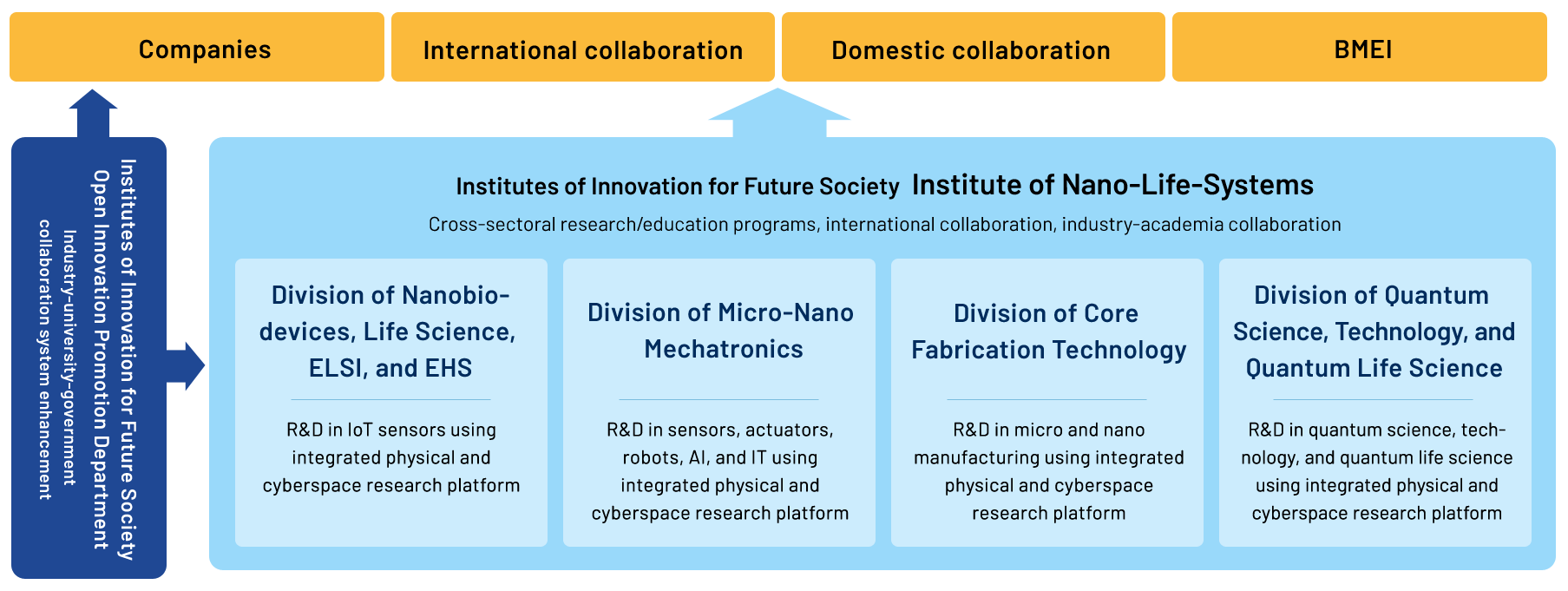About
Faced with the social issues of unprecedented extreme population aging and shrinking population, Japan proposed the deepening and promotion of "Society 5.0 (super-smart society)" at the 2017 Comprehensive Strategy on Science, Technology and Innovation decided in a cabinet meeting on June 2, 2017 based on the 5th Science and Technology Basic Plan.
Here, the realization of a human-centered society which addresses both economic development and social issues by integrating cyberspace with the physical space at the highest level was advocated, and scientific and technological innovation are expected to play a vital role.
The development of basic technologies such as robot technology, sensor technology, actuator technology, nanotechnology, and biotechnology has become necessary in response to social needs, particularly to address labor shortages and improve service sector productivity through the use of robots in an aging society with fewer children, using artificial intelligence (AI) to create higher value in the transportation sector through automatic operation and production, as well as to construct the ultimate ecosystems, and the realization of advanced medical and nursing care by utilizing big data.
Nagoya University is located in the Tokai region, a world-leading industrial cluster, and boasts a Research Center for Advanced Nanobiodevices and Center for Micro-Nano Mechatronics equipped with the basic technologies required to contribute to such manufacturing. Moreover, our Center for Advanced Medicine and Clinical Research, pioneer of some of the world-leading advanced medicine for which Japan is well known, provides us with an ample base for research to realize the super-smart society required to tackle social issues such as extreme population aging put forth by the government.
Based on this, through medical-engineering collaboration centered around our Graduate School of Engineering and Graduate School of Medicine, as well as providing university-wide cross-sectoral and dissimilar field collaborative research and education systems, industry-academia collaborative education systems involving business, and research and education systems involving overseas research institutes beginning with North Carolina State University in collaboration with our Open Innovation Promotion Department, we aim to enhance the functions of our university, contribute to manufacturing internationally, and develop human resources capable of creating social value. To address this, we established a Institute of Nano-Life-Systems tasked with research into life sciences, manufacturing, and nanotechnology to develop mechanisms at our Institutes of Innovation for Future Society.
Yasuhisa Hasegawa, Director of NLS
Main activities
- Joint research promotion seminars
- Lectures on industry-academia joint development education, and areas of integration
- International symposiums, research exchange with overseas research institutes
- Assistance with obtaining large projects

 Institute of Nano-Life-Systems
Institute of Nano-Life-Systems